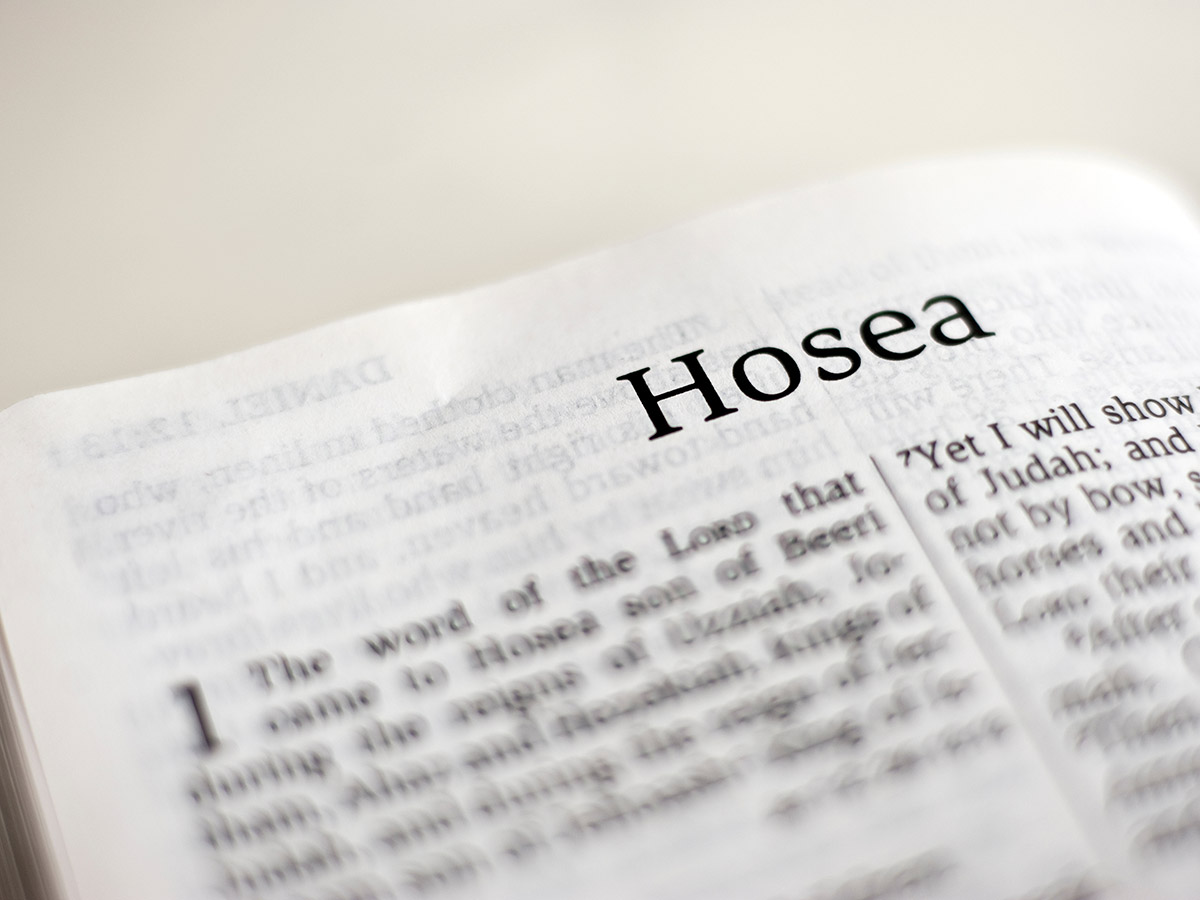I have a love-hate relationship with the editorial assistant built into word processors. I appreciate that such assistants will point out my bad habits (most commonly, my penchant for the passive voice) so that I can repent and amend my behavior. Yet all too often I find myself frustrated with the word processor’s proposed emendations. At times, the change would drain the writing of the unique voice of a unique author so that it fits a generalized norm. At other times, the change would remove the vitality of the text.
In my current work on the prophet Hosea, I have encountered a broken blue underlining to my translation and commentary, alerting me to my writing having gone askew of some norm. When I place my cursor on the broken blue underlining, the editorial note pops up: “This language may be offensive to your reader.” The offense is bound up in my translation of the Hebrew verb זנה as “to whore.” Check the various Hebrew lexicons and you will find other possibilities for how to translate זנה – “to act as a prostitute” or “to fornicate.” The same editorial note pops up for my translation of the nouns זְנוּנִים and זְנוּת (both of which are derived from זנה) as “whoring” or “whoredom” rather than “prostitution” or “fornication.” The offensive rub of the words is even more pronounced in Hosea due to their prevalence in comparison to the rest of the Old Testament (twelve of the ninety-three occurrences of זנה are in Hosea; six of the twelve occurrences of זְנוּנִים are in Hosea; two of the nine occurrences of זְנוּת are in Hosea). In Hosea 2:2 there are two uses of זנה along with two of זְנוּנִים. That is a lot of “whore” language in one verse! How could someone not be offended?
But that is just the point. The text is meant to offend. The word of Yahweh intends to shock complacent sinners. Early in my work on Hosea, I invested considerable time and energy considering the best way to translate זנה and its cognates. I settled upon “whore” translations as most fitting what Yahweh is saying through Hosea. My ongoing work with Hosea has only fortified me in that decision. The shock of reading “whore” over and over again is reinforced by other shocking language.
Hosea’s shocking language is not permission for me to cavalierly commandeer shocking language when engaging others. Rightly applying law and gospel (Hosea’s “whore” language is heavy duty law) requires knowing whom you are addressing. Hosea is delivered to impenitent Israel. Consider that adjective and noun. First, the noun “Israel.” Hosea is delivered to the covenant-people of Yahweh. Hosea regularly refers to the Torah, especially Deuteronomy, to remind them of their covenant with Yahweh. Hosea is not speaking to Gentiles. Second, the adjective “impenitent.” Israel has violated the covenant. They have chased after the baals. The shocking language of Hosea is aimed at the people of Yahweh who live as if they are something other than his people.
The shocking language of Hosea is aimed at me. “Whore” is Hosea’s potent description of idolatry. Whenever I fall into sin, I am practicing idolatry as I am fearing, loving, or trusting in something more than Yahweh. Whenever I fall into sin, I am unfaithful to Yahweh. Whenever I fall into sin, I am whoring after whatever idol has seized my fear, love, and trust. Hosea’s shocking language is a holy two-by-four upside my hard head. Hosea’s shocking language is the law that I need when I am encumbered by sin. And it prepares me for something far more shocking. Israel’s whoring ways are captured in Hosea 2:15 (2:13 in English translations) as she chases after her loves while she forgets her husband Yahweh. Then comes the shock in Hosea 2:16 (2:14 in English). לָכֵן “Therefore….” Because Israel has gone whoring after the baals, Yahweh says, “Therefore, I am wooing her.” There is no greater shock than that. Yahweh’s response to Israel’s infidelity is to double-down on his fidelity toward her. That is the shock of the gospel. As much as Hosea’s potent proclamation of the law crushes me in my sin, Hosea’s proclamation of the gospel is far exceeding. How shocking is Yahweh that he takes on human flesh, suffers, dies, and rises to woo his people back to himself, making us to no longer be a whore but the bride of Christ.



Leave a Reply
You must be logged in to post a comment.